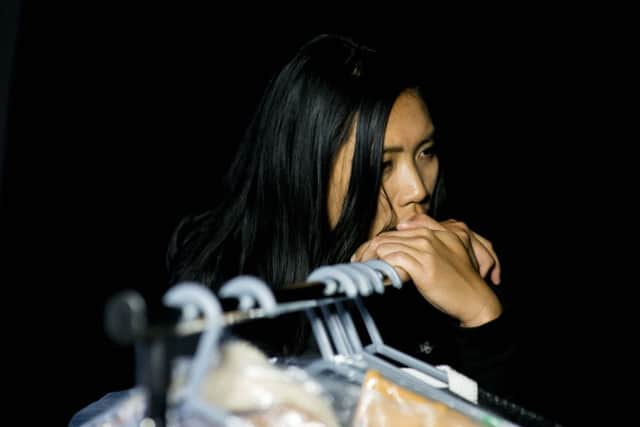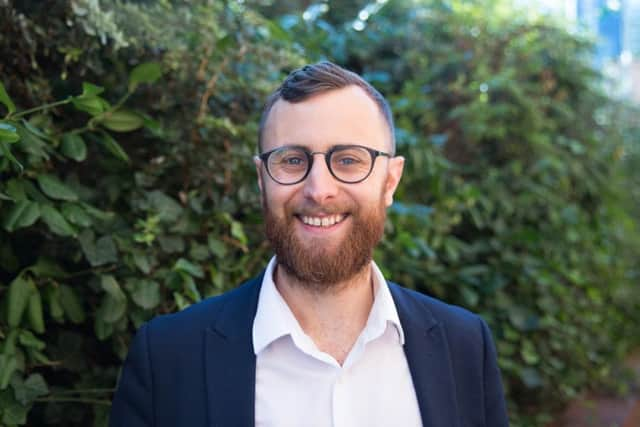Human trafficking is happening on our doorstep, says head of Sheffield anti-slavery charity


Sharon endured the ultimate betrayal. She was enticed to the UK with false promises, then manipulated into a life of slavery – by a member of her own family. She came to the Yorkshire and Humber area from Ghana with dreams of becoming an accountant.
“My country is beautiful but there are no opportunities for anyone and there is corruption,” says Sharon, not her real name, who is now 27. “I wanted to be an accountant. I managed to study for an accountancy diploma. But there was no chance of getting any further. I was sat at home, helping my mum and feeling I’d just wasted three years of study.
Advertisement
Hide AdAdvertisement
Hide Ad“When my cousin, who was living in the UK, told me about her successful life, and promised to help me to get into college near her, I was really excited.


“She said I could stay with her and her family and offered to organise my visa and pay for my flight. People will say this sounded too good to be true but I had known her all my life; I trusted her totally.”
Sharon moved into her cousin’s home. She was given a mattress on the floor in the children’s bedroom, but she was told she would need to wait until September to start college, and asked to work in her cousin’s business in the meantime.
“I didn’t mind. I felt it was the least I could do to repay her for her kindness,” she says. “I worked six days a week until late each day, without receiving a penny. I felt very grateful to them. I didn’t want to make a fuss. But then I was asked to do the household chores on top of my job, and take the children to school. Without realising it, I had become the family’s unpaid servant and totally dependent on them. I would have liked to go out to make friends, but without money it was impossible. I think that was the plan – to isolate me. I became less and less confident.”
Advertisement
Hide AdAdvertisement
Hide AdWhen the cousin’s business collapsed, there was no escape for Sharon. She was given false identity papers and a job was found for her.
“I didn’t have a say in it. They told me I needed to do it to pay for my college course, and living expenses while I studied. I could see their point so went along with it.” Around her household duties, she worked in a clothing warehouse. She has no idea how much she was earning, her wages went straight into her cousin’s bank account.
“She told me she was saving the money for me. But whenever I asked about applying for my college place, she would tell me I wasn’t ready. My English wasn’t good enough, I needed to be more settled here. There was always a reason. I had worked at the warehouse for over a year when I asked my cousin how much had been saved for me and where the money was. She got very angry and said I owed her money for the paperwork, my airfare and my room in her house. She always made me feel I should be grateful to her.”
Eventually Sharon confided in a friend at the factory, who helped her to get her payment details changed at the warehouse. That meant she would receive her next wage. It would give her the means to escape from her cousin.
Advertisement
Hide AdAdvertisement
Hide Ad“I was really frightened; I knew as soon as my wages didn’t drop into her account she would realise what I had done. I sneaked out of her house and went to stay with my work friend.”
Sure enough, the cousin came to the warehouse and confronted Sharon, then told factory bosses and the police that it was Sharon who had acted fraudulently.
“She said I had stolen her documents and identity. My manager called the police and I was put in a cell overnight. They were more interested in the fact that I only had a visitor’s visa which had expired and reported me to immigration authorities.
“A document of deportation was issued and I was terrified. I told them I was the victim and wanted to claim asylum.”
Advertisement
Hide AdAdvertisement
Hide AdAs soon as the police released her, she went to ground. With no income and no home, she slept on the sofas of her former workmates for two years.
Eventually she met a man and moved into his home. She told him about her cousin and he took her to a lawyer, who contacted immigration services.
“I gave them as much information as I could. I told them my cousin had received all of my wages for over a year.”
At an initial assessment for claiming asylum, it was decided there were reasonable grounds to identify Sharon as a victim of human trafficking and was referred into the National Referral Mechanism (NRM) – the system by which victims of modern slavery are identified and provided with support. She was given the Salvation Army’s specialist support for victims of modern slavery. By this time she had a daughter and her relationship had broken down. The Home Office found them an apartment. “I had a place no one could kick me out of. I felt safe.”
Advertisement
Hide AdAdvertisement
Hide AdThe Salvation Army introduced Sharon to the Sheffield charity City Hearts. Her City Hearts caseworker gave her emotional support and counselling. She was putin touch with support services for refugees and asylum seekers and a church, where she made friends. Because she is recognised as a potential victim, she is allowed to stay in the UK pending a verdict on her status. It should take 47 days – she has been waiting since 2017. She is not allowed to work but has enrolled at catering college and hopes to become a cook. She lives off a weekly allowance of £37.75 from the National Asylum Seeker Service and a temporary additional amount of £27.25 from the NRM.
Amy Harrison, senior anti- human trafficking caseworker at City Hearts, says: “Sharon is stuck in the system somewhere and while she waits in limbo, we are supporting her. She is working towards a future, but where that future will be is unknown.”
CEO of Sheffield charity City Hearts, Ed Newton, said: “People should not imagine trafficking only exists in major cities like London. It is happening right now, on our doorsteps, in Sheffield, Rotherham, Barnsley and Doncaster.”
According to the charity, latest statistics indicate there are as many as 136,000 modern-day slaves in the UK.
Advertisement
Hide AdAdvertisement
Hide AdFounded in Sheffield 14 years ago, City Hearts aims to restore the lives of people rescued from trafficking and modern slavery. Nationally recognised for its work with over 2,000 survivors in the last five years, the organisation has grown dramatically to cope with the explosion in trafficking – in 2018 6,993 were referred into the National Referral Mechanism, a 36 per cent rise from 2017.